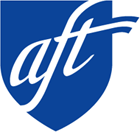In these video clips and journal entries, teachers from our Common Core in Albuquerque, NM project share their ideas on what kinds of planning will be needed to successfully plan for the Common Core.
Journals: Planning the Lessons
Loyola Garcia: In-depth preparation for lessons
Diane August was able to push our group to be very explicit about what it was we were doing during our lesson. I think as good teachers we do so many things "on the fly." It was great to take a time out and be able to truly anticipate the children's funds of knowledge/what they bring to the table, and how they are going to react to the lesson. It was also nice to be very thoughtful about how we are going to be sure that the children have access to the standards.
We looked at every page of the book we based our lesson on. We pulled out vocabulary that we thought would be troublesome for ELLs. We even began to look at how we could use the book to teach transition words and grammar. The process showed me that it is important for teacher to truly take time to think about vocabulary before reading a story — whether it is a read aloud or comprehension lesson. It is important that we don't just pick up a book and read it if we are to get the most out of our time with children.
Norma Lujan Quiñones: In-depth lessons
Working with Diane August on Tuesday opened my eyes to many things. And by the end of the day, we were all very exhausted. I thought about how I could better my teaching styles in order to meet the needs of all my students. We really dug deep into the literature and no longer as a teacher will I just pick up a book and read it to my students. There is so much to think about with regards to how we read to children and what we use in order to reach our ELLs and help them to understand the standards.
In my classroom, I use many strategies to reach my ELLs like TPR, pictures, chants, etc. However, I never took apart a piece of literature the way we did with Burro's Tortillas. When my group and I began working on this lesson, we only listed the CCSS that had to do with our objective. However, there are ways to include more standards by just asking the students one or two questions. One aspect of teaching where I feel I could improve is how to assess. This was one aspect of our meeting that I would like to be more clear. I learned how to craft lessons. This I don't remember ever learning in my studies.
Earlier in my reflection, I was concerned about insulting professionals and feeling like we shouldn't script every single detail. However, after speaking with Diane, she assured us that there are many teachers who for one, have never worked with ELLs, and two, are brand new teachers who are just getting started. It opened my eyes and I now understand her reasoning. Working with this group of professionals has been such an honor.
I honestly believe all teachers should experience this process at least once in their career. Just the work on this one lesson has taught me how important it is to really dig deep into a unit of study and engage the students in a lesson where deep understanding takes place. They are engaged in literacy and language in such a meaningful way. It is not enough just to read rich literature. I have grown so much as a teacher just in this first experience working with the cadre to develop this first lesson. In my own classroom, I have made it a point to practice what I have learned here.
Deborah Mathen: Building a knowledge base
The cadre of teachers I have been working with were building a knowledge base and they got to a point where they just wanted to create lessons. We went ahead and did this and realized we needed to go back and do some more research on questioning/thinking strategies. Hence, the initiative to start out slow and build the knowledge base is viable. But I must also say that going through the motions, crafting a lesson plan using the CCSS, and then realizing we needed to go back a few steps was also a positive growing sequence. I mean how can you know what you don't know until you've done it and realized well that didn't go as planned?
Lastly, the group I have been working with talked about Lesson Study, where lessons are created together, then as peers we observe each other teach the lessons, to really see what the students are getting. This is a great idea.
Journals: What Kind of Training Is Needed?
Ali Nava: District training
I still feel confident about the work we have accomplished so far. Today I attended a district wide training on the CCSS. Some positive aspects of the training were that we were given an opportunity to unwrap one particular standard and also see the variations/changes/progression of each standard vertically. As a first-grade teacher, I was provided with a snapshot of the progression of each standard through kinder, first, and second grade. I no longer feel that I am solely responsible for first grade standards, but rather for having knowledge of many levels so that we as a school can dramatically progress in teaching our students.
I feel thankful that teachers across the country will now be able to incorporate their individual creativity within their lessons, but I also feel that that is what makes teaching an art more than a science. Teachers should not feel stifled in their ability to provide their students with meaningful learning that goes beyond any curriculum, even outside of the classroom. This is what great teachers do. They get to know their students, and form strong relationships tailored to each students needs. They cover all the standards leaving no gaps and then soar above them.
Loyola Garcia: Planning for the standards
I was having a conversation with my principal the other day about the CCSS. She was saying that she is very concerned that we are going to be expected to fully implement the new standards next school year. Having gone through the process of planning using the standards, I really agree with her. I am concerned if we do not have a chance to really get to know the standards & collaborate — do some backwards planning — then the standards are not going to be put to best use.
It still really concerns me that we have had a culture over the past 10 years of following a scripted program. Standards-based teaching and assessing is going to be so different for so many teachers. We are going to need much more support. It is not going to work if teachers are given the standards and told to just start using them.
Maria Padilla-Enyart: What do teachers need?
Teachers will need professional development similar to what this cadre is achieving. They will have to become proficient writing lesson plans that address the standards. They will have to become familiar with the lexile level for the lessons they are going to teach to assure that the lessons are challenging enough.
Lynne Harper: Planning with the standards
My thinking about the CCSS has changed since starting this project. I cannot just rely on a program or textbook any more. I need to look at the standard and PLAN. I need to have time to plan with my teammates so we can have common standards — cross-curricular standards. When I'm planning a science lesson I should be looking at the science literacy standards to make sure that I am covering those for every unit that I teach. In English class they can read an informational book that relates to something being taught in science. Thematic units would seem to tie things together.
Journals: Collaboration
Elizabeth Dukart: Sharing collaboration with colleagues
I can't imagine how wonderful it would be to be able to do the kind of work our cadre is working on with my grade level or as a vertical articulation activity with other staff members at my school…I know I work with some wonderful people, and would love the opportunity to learn from them and share the ideas I find and use.
Maria Padilla-Enyart: Collaboration with colleagues
Being on this cadre has enriched my teaching. Teaching is very isolating. There is never enough time to collaborate with my colleagues. Listening to the interactions that occur during the meetings, spurs me to get involved again in helping teachers learn to accommodate ELL students.
The best part of this experience has been working with my cadre. It's been a while since I've had the opportunity to interact with teachers from other schools. Just to be able to share and learn what is happening in our respective schools has been invaluable. The experiences that we have been able to share and the collaboration in creating a plan was exciting and fulfilling.








Add new comment